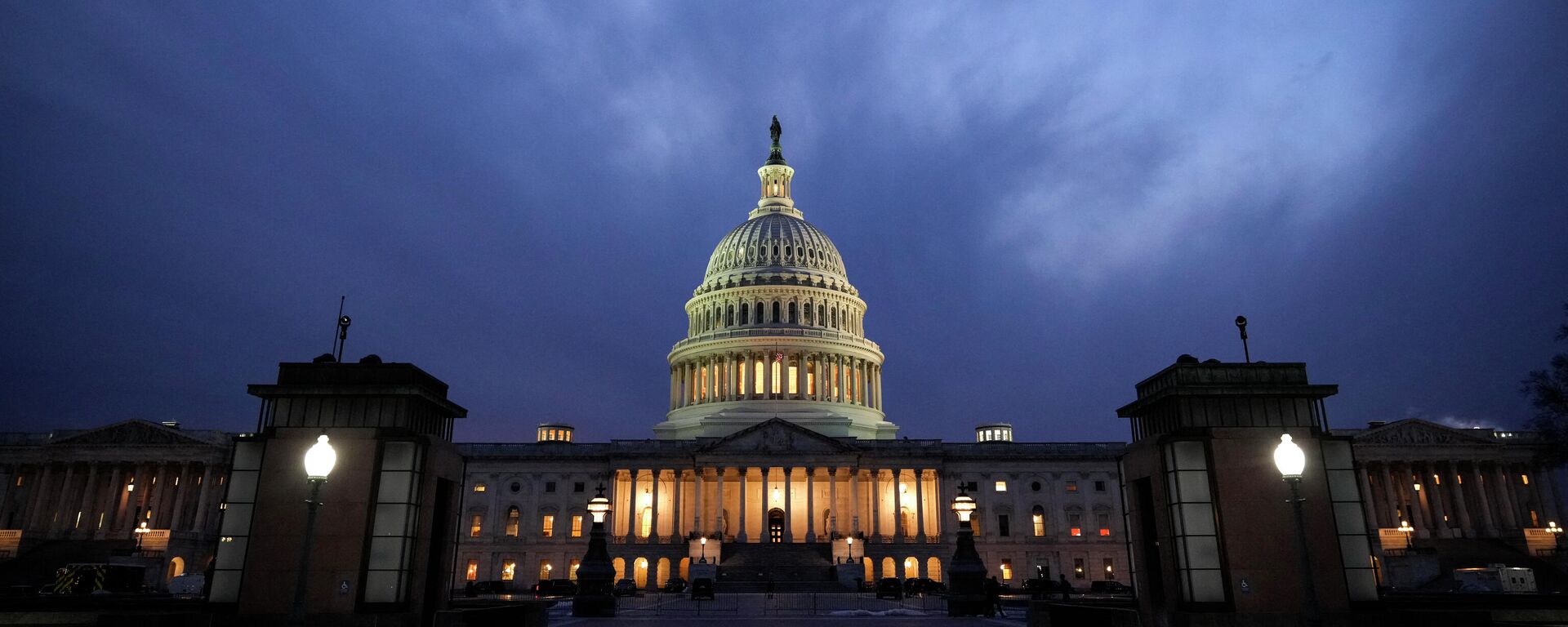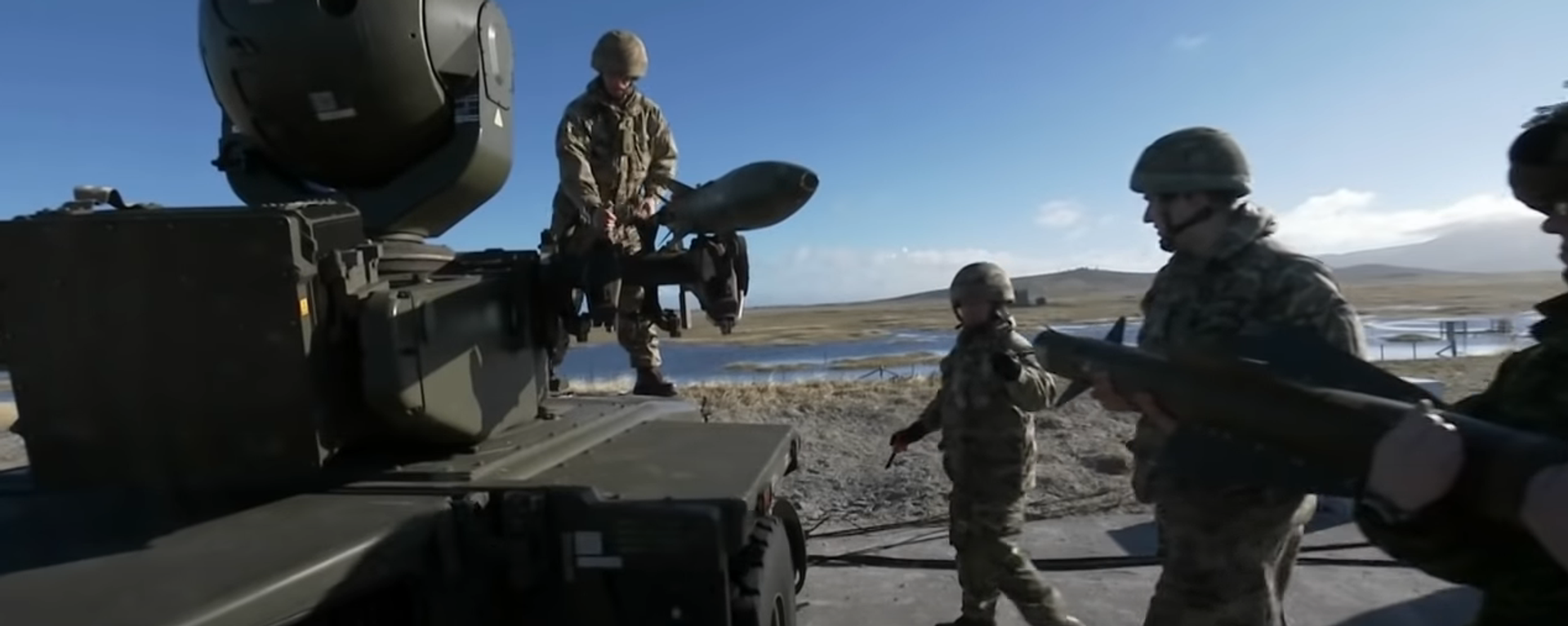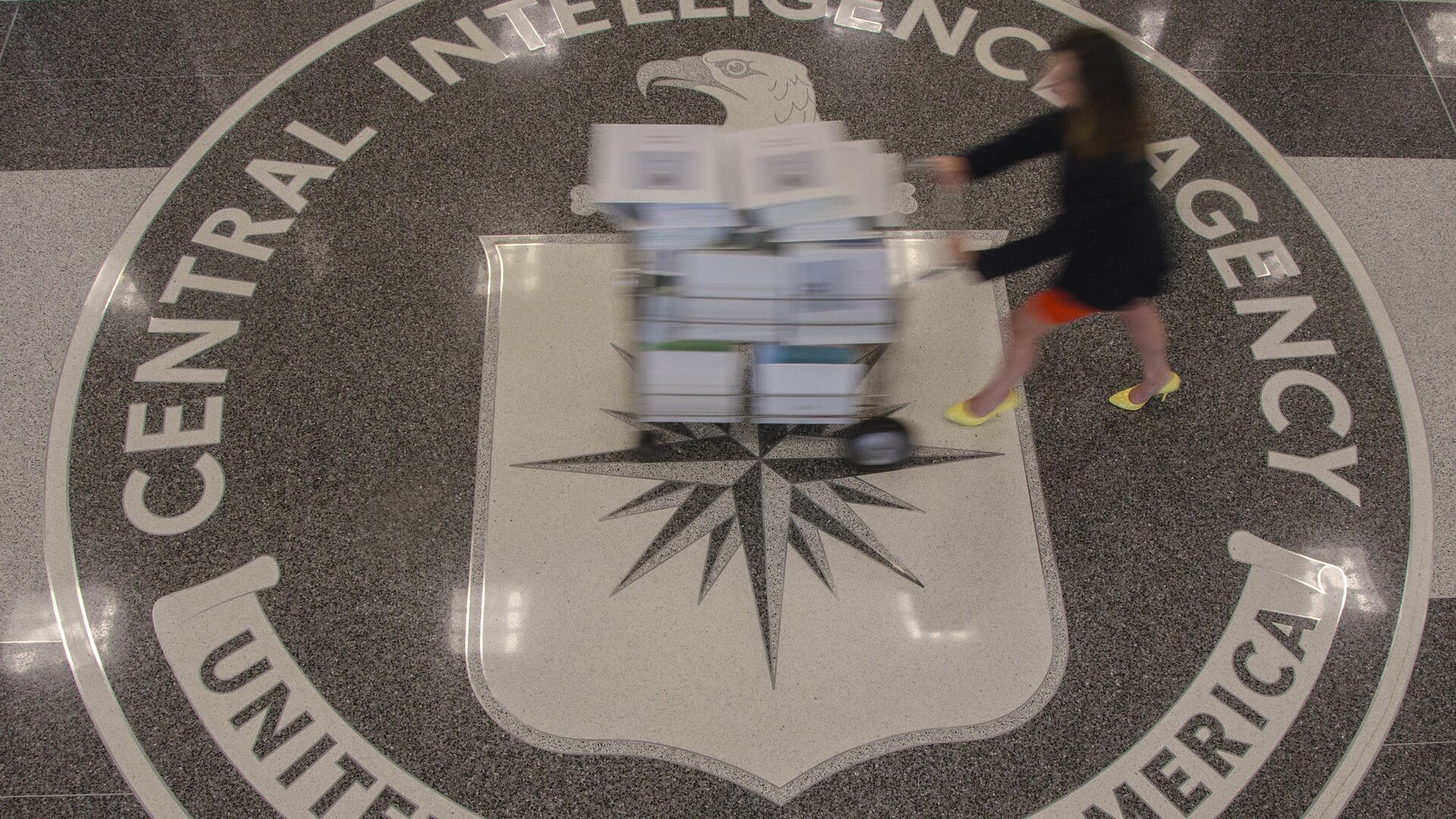https://sputnikglobe.com/20220125/us-reportedly-mulling-more-russia-sanctions-targeting-raw-materials-arms-exports-1092506966.html
CIA Reportedly Creates Plan to Slap Russian Raw Materials, Arms Exports With Sanctions Worth $50 Bln
CIA Reportedly Creates Plan to Slap Russian Raw Materials, Arms Exports With Sanctions Worth $50 Bln
Sputnik International
Last week, President Biden warned that Russia would face sanctions unlike any ever seen before if it invaded Ukraine. Moscow has repeatedly denied any... 25.01.2022, Sputnik International
2022-01-25T13:15+0000
2022-01-25T13:15+0000
2022-01-25T15:07+0000
sanctions
https://cdn1.img.sputnikglobe.com/img/07e4/08/0d/1080155574_0:122:2048:1274_1920x0_80_0_0_8953cc9fb7ae7c4c22f98027ef8ffac3.jpg
The United States is mulling a CIA-researched package of additional sanctions against Russia in the event of an escalation over Ukraine, Bild reports.The sanctions package was reportedly presented in Berlin by Secretary of State Antony Blinken, who visited the German capital last Thursday for meetings with his German counterpart, and developed by William Burns, the CIA chief who served as US ambassador to Russia between 2005 and 2008."The US and the West... want to attack Russia's role as the world's largest supplier of raw materials," Bild summarises.German leaders are reportedly calling for less of a hardline approach, assuring Washington that gas would not be pumped through the new Nord Stream 2 pipeline if the situation in Ukraine were to escalate, but ruling out the energy project's complete cancellation, as demanded by some US lawmakers.Sanctions to Target Russian 'Strategic Ambitions'In a related development, an unnamed US official told reporters on Tuesday that a Russian "invasion" of Ukraine would result in restrictions on the sale of US high tech goods using export controls. Sanctions would also target Russia's defence sector, the aerospace industry, AI and quantum computing technology, and other tech contributing to "Russian strategic ambitions," the official said in a telephone briefing.The new details on potential sanctions follow President Joe Biden's warning last week that his Russian counterpart Vladimir Putin would see sanctions unlike any he has seen before if tensions were to escalate over Ukraine. Biden stressed that Russia would be made to suffer the consequences if it "further invade[d]" Ukraine.Biden's remarks were followed by the introduction of a bill in Congress by Republican Representative Jim Banks proposing the targeting Nord Stream 2 and organisations related to the project, and recommending prohibitions against the purchase of Russian sovereign debt by US persons and entities. The bill also seeks to have Russia be declared a "state sponsor of terrorism" and to list the "Russian-backed" forces in the Donbass as "terrorists." Finally, the bill, if passed, would require that Washington halt its cybersecurity dialogue with Moscow, and limit negotiations on strategic stability until Russia ends its "occupation" of Crimea.Russian Foreign Ministry spokeswoman Maria Zakharova slammed the West's behaviour as it relates to the crisis in Ukraine on Monday, accusing the US and its allies of using Kiev as a tool to advance its own interests in Eastern Europe and to destabilise the situation while "endlessly accusing" Russia. The West, Zakharova said, needs a pretext to constantly justify anti-Russian sanctions, and has used Ukraine for this purpose.The Ukraine crisis began in February 2014, when US and European Union-backed forces toppled the democratically elected Yanukovych government in a coup after it attempted to pivot away from European integration in favour of the Russian-led Eurasian Economic Union. The coup prompted authorities in Crimea to organize a referendum to break off from Ukraine and rejoin Russia, and sparked a civil war in Ukraine's Donbass region after Kiev sent troops to try to crush local pro-independence forces by force. The West blamed Moscow for the crisis.In the spring of 2021 and then again in the fall and winter of 2021-2022, Western officials have accused Russia of building up troops on the border with Ukraine, supposedly in preparation for an invasion. Russia has dismissed these claims and warned that the West may be artificially ratcheting up tensions to egg on Kiev to try to resolve the conflict in the Donbass by force.
https://sputnikglobe.com/20220120/new-draft-of-us-sanctions-seeks-ban-on-transactions-with-russias-sovereign-debt-1092400299.html
https://sputnikglobe.com/20220125/uk-unlikely-to-send-troops-to-ukraine-foreign-minister-says-1092506382.html
Sputnik International
feedback@sputniknews.com
+74956456601
MIA „Rosiya Segodnya“
2022
News
en_EN
Sputnik International
feedback@sputniknews.com
+74956456601
MIA „Rosiya Segodnya“
Sputnik International
feedback@sputniknews.com
+74956456601
MIA „Rosiya Segodnya“
sanctions
CIA Reportedly Creates Plan to Slap Russian Raw Materials, Arms Exports With Sanctions Worth $50 Bln
13:15 GMT 25.01.2022 (Updated: 15:07 GMT 25.01.2022) Last week, President Biden warned that Russia would face sanctions unlike any ever seen before if it invaded Ukraine. Moscow has repeatedly denied any intention of doing so, accusing the West of hyping up the "Russian threat" to justify NATO's expansion, and calling the claims a cover for Kiev's own plans to resolve the war in the Donbass by force.
The United States is mulling a CIA-researched package of additional sanctions against Russia in the event of an escalation over Ukraine, Bild
reports.
The sanctions package was reportedly presented in Berlin by Secretary of State Antony Blinken, who visited the German capital last Thursday for meetings with his German counterpart, and developed by William Burns, the CIA chief who served as US ambassador to Russia between 2005 and 2008.
According to the German newspaper, the new sanctions would target Russian commodities and weapons exports, with the total economic damage from the restrictions expected to reach the equivalent of up to $50 billion. Diplomatic contacts would also be reduced as part of the restrictions.
"The US and the West... want to attack Russia's role as the world's largest supplier of raw materials," Bild summarises.
According to Bild's sources, Blinken has made the sanctions plan "clear" to America's allies, with the restrictions aimed at "blocking Russian trade routes around the world," "blocking supply routes" used by Moscow, and ensuring "a sharp reduction in the staff of Russian embassies in Western countries."
German leaders are reportedly calling for less of a hardline approach, assuring Washington that gas would not be pumped through the new Nord Stream 2 pipeline if the situation in Ukraine were to escalate, but ruling out the energy project's complete cancellation, as demanded by some US lawmakers.
Sanctions to Target Russian 'Strategic Ambitions'
In a related development, an unnamed US official told reporters on Tuesday that a Russian "invasion" of Ukraine would result in restrictions on the sale of US high tech goods using export controls. Sanctions would also target Russia's defence sector, the aerospace industry, AI and quantum computing technology, and other tech contributing to "Russian strategic ambitions," the official said in a telephone briefing.
The new details on potential sanctions follow President Joe Biden's warning last week that his Russian counterpart Vladimir Putin would see sanctions unlike any he has seen before if tensions were to escalate over Ukraine. Biden stressed that Russia would be made to suffer the consequences if it "further invade[d]" Ukraine.
Biden's remarks were followed by the introduction of a bill in Congress by Republican Representative Jim Banks proposing the targeting Nord Stream 2 and organisations related to the project, and recommending prohibitions against the purchase of Russian sovereign debt by US persons and entities. The bill also seeks to have Russia be declared a "state sponsor of terrorism" and to list the "Russian-backed" forces in the Donbass as "terrorists." Finally, the bill, if passed, would require that Washington halt its cybersecurity dialogue with Moscow, and limit negotiations on strategic stability until Russia ends its "occupation" of Crimea.

20 January 2022, 15:48 GMT
Russian Foreign Ministry spokeswoman Maria Zakharova
slammed the West's behaviour as it relates to the crisis in Ukraine on Monday, accusing the US and its allies of using Kiev as a tool to advance its own interests in Eastern Europe and to destabilise the situation while "endlessly accusing" Russia. The West, Zakharova said, needs a pretext to constantly justify anti-Russian sanctions, and has used Ukraine for this purpose.
The Ukraine crisis began in February 2014, when US and European Union-backed forces toppled the democratically elected Yanukovych government in a coup after it attempted to pivot away from European integration in favour of the Russian-led Eurasian Economic Union. The coup prompted authorities in Crimea to organize a referendum to break off from Ukraine and rejoin Russia, and sparked a civil war in Ukraine's Donbass region after Kiev sent troops to try to crush local pro-independence forces by force. The West blamed Moscow for the crisis.
In the spring of 2021 and then again in the fall and winter of 2021-2022, Western officials have accused Russia of building up troops on the border with Ukraine, supposedly in preparation for an invasion. Russia has dismissed these claims and warned that the West may be artificially ratcheting up tensions to egg on Kiev to try to resolve the conflict in the Donbass by force.

25 January 2022, 13:00 GMT





